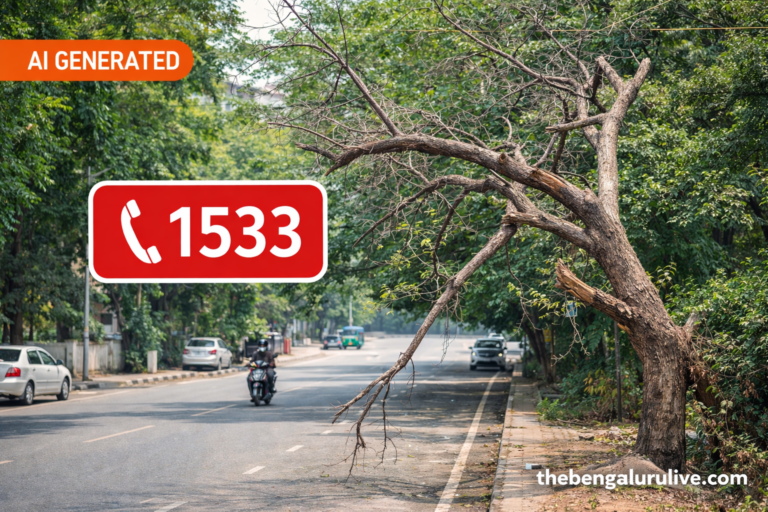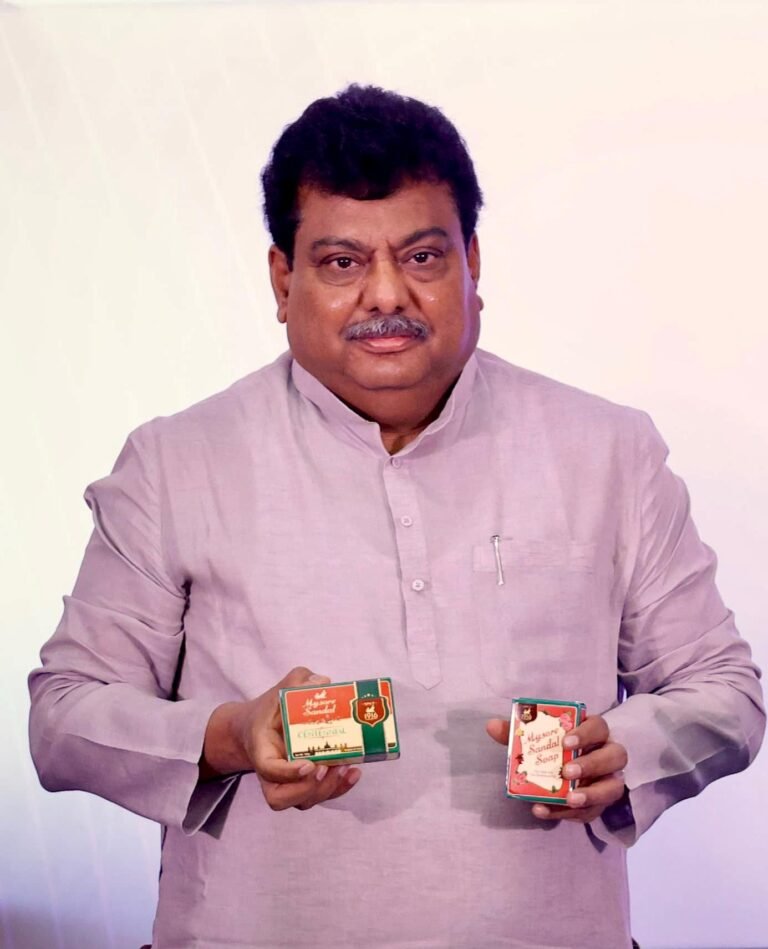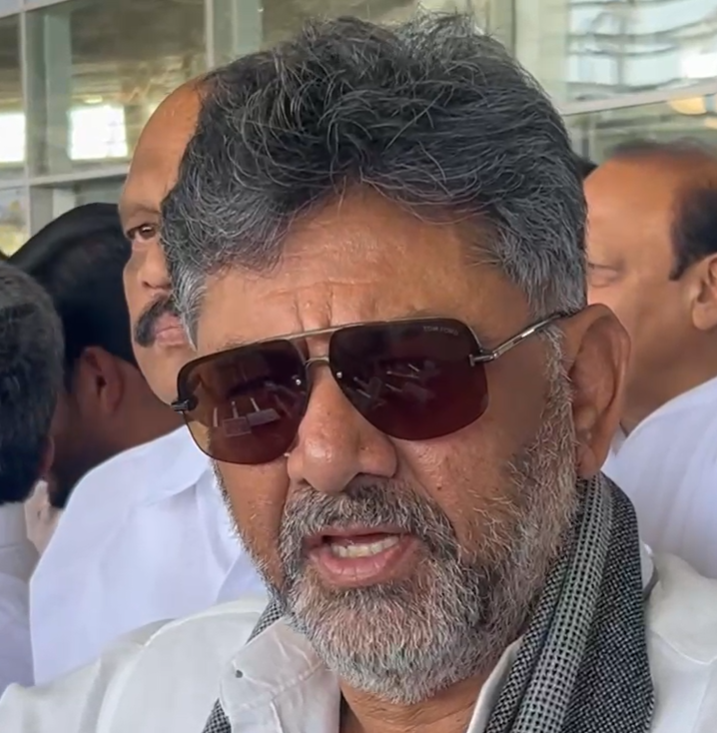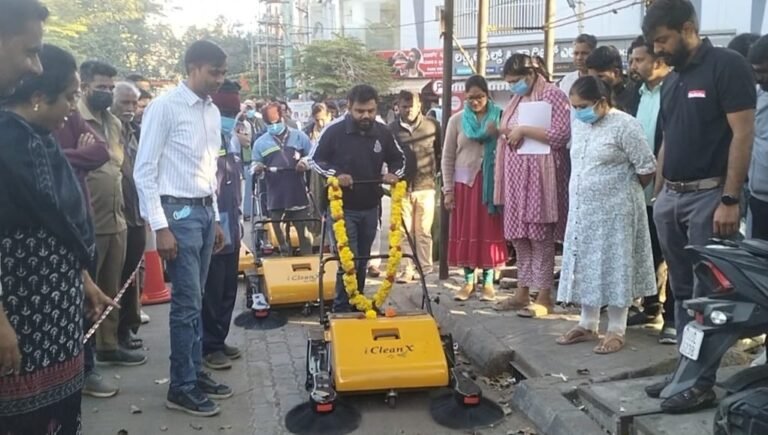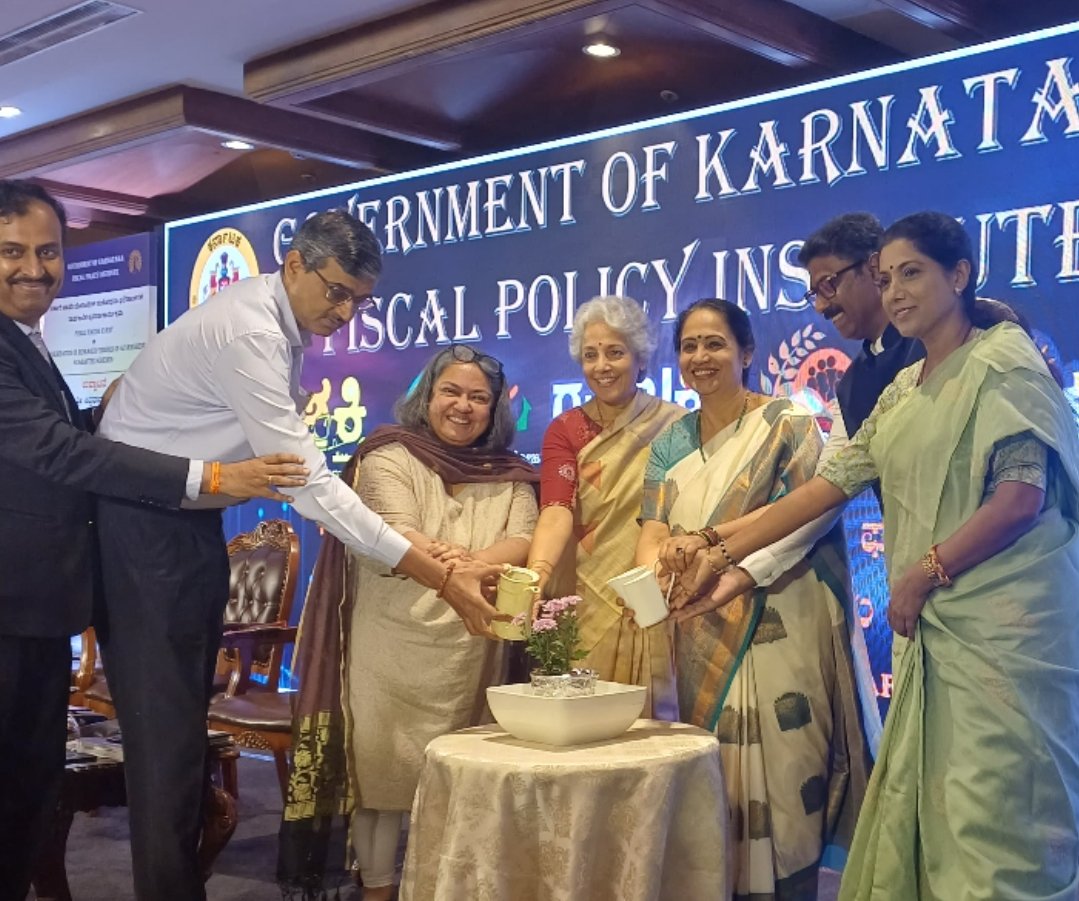
Bengaluru: Karnataka’s flagship Guarantee Schemes have played a key role in helping the state move closer to achieving the United Nations Sustainable Development Goals (SDGs), said Chief Secretary Dr. Shalini Rajneesh, addressing a stakeholders’ meet on Monday.
Speaking at a conclave held at Hotel Taj Trinity, organized by the Fiscal Policy Institute in association with five leading research institutions, Dr. Rajneesh highlighted the social and economic impact of the government’s five guarantee schemes and their alignment with India’s SDG commitments.
“Even after 75 years of independence, many constitutional goals remain to be achieved. The first SDG — the eradication of poverty — is being effectively addressed through Karnataka’s guarantee schemes,” she noted.
Karnataka now ranks among the states with the highest per capita income in India, largely due to the economic and social empowerment brought by these welfare schemes, she said.
Dr. Rajneesh added that Anna Bhagya, Gruha Lakshmi, Yuva Nidhi, Shakti, and Gruha Jyothi have together strengthened access to nutrition, education, and employment. These initiatives, she said, are helping achieve SDG goals such as Zero Hunger, Gender Equality, and Decent Work for All.
She stressed that the state’s focus on women-centric programmes has resulted in a 37% increase in female participation in the workforce over two years — proving that empowering women uplifts families and communities.
The Chief Secretary observed that the government’s transparency in sharing evaluation data with researchers and the public “reflects accountability and evidence-based governance.”
Key Research Findings
1. Gruha Lakshmi Scheme:
A survey by King’s College London revealed that 99.8% of beneficiaries received the ₹2,000 monthly cash benefit, though 78% reported some delay in payments. Most beneficiaries used the funds for food (78%), family expenses (54%), medicine (48%), and children’s education (28%). The scheme has also increased women’s financial independence — the number of women managing their own bank accounts rose by 15%.
2. Anna Bhagya Scheme:
95% of respondents preferred receiving food grains rather than cash transfers, endorsing the government’s recent decision to continue direct grain distribution through Indira Kits.
3. Gruha Jyothi Scheme:
89% of households reported savings on electricity bills, with 94% using the savings for family expenses.
4. Shakti Scheme:
The free bus travel scheme has provided major financial relief for women. Around 43% reported monthly savings, while 98.7% said it enhanced their travel freedom and 92.9% reported reduced dependence on male family members for mobility. Nearly 10.5% of women said the scheme helped them enter the workforce, with many now traveling farther for employment.
5. Overall Economic Impact:
According to a study by XKDR Forum (Mumbai), the state’s welfare spending per family has risen from ₹170 per month in 2023 to ₹2,425 in 2024. The percentage of families receiving government aid rose from 9.3% in 2022 to 72.7% in 2024.
Dr. Soumya Swaminathan, Chairperson of the M.S. Swaminathan Research Foundation, dismissed the perception that guarantee schemes make citizens dependent.
“Our data shows that people use the money for children’s education, healthcare, and household needs. These schemes empower families — they don’t create dependency,” she stated.
She added that post-COVID challenges like climate change, food security, and nutrition demand continued policy attention.
ಇದನ್ನು ಓದಿ: Guarantee schemes playing vital role in achieving Sustainable Development Goals: ಸುಸ್ಥಿರ ಅಭಿವೃದ್ಧಿ ಗುರಿಗಳನ್ನು ಸಾಧಿಸುವ ದಿಕ್ಕಿನಲ್ಲಿ ರಾಜ್ಯದ ಖಾತರಿ ಯೋಜನೆಗಳು ಪ್ರಮುಖ ಪಾತ್ರ ವಹಿಸುತ್ತಿವೆ: ಮುಖ್ಯ ಕಾರ್ಯದರ್ಶಿ ಡಾ. ಶಾಲಿನಿ ರಜನೀಶ್
Other distinguished participants included Additional Chief Secretary and Development Commissioner Uma Mahadevan, Finance Secretary Ritesh Kumar Singh, Dr. vishal, Mehrooz Khan, Pushpa Amaranath, and Dinesh Gooligowda.
Academics from IISc, Azim Premji University, King’s College London, and NIAS also shared their evaluations, concluding that Karnataka’s Guarantee Schemes have directly advanced 11 out of the 17 Sustainable Development Goals — particularly in poverty reduction, women’s empowerment, and equitable growth.


